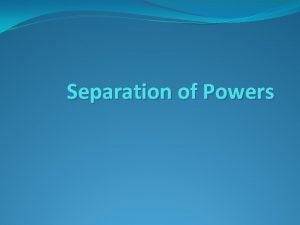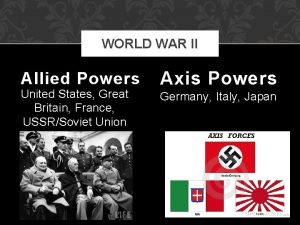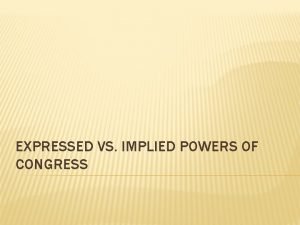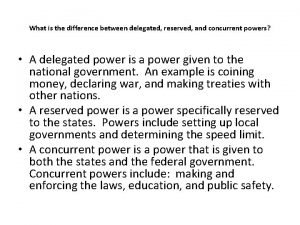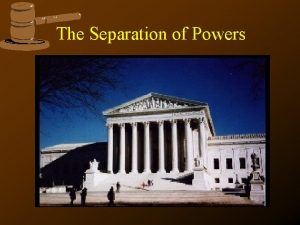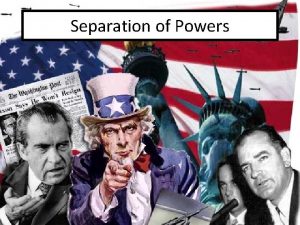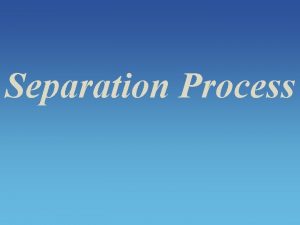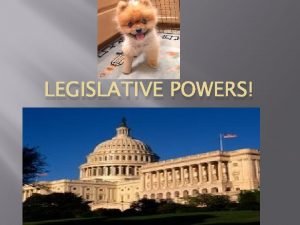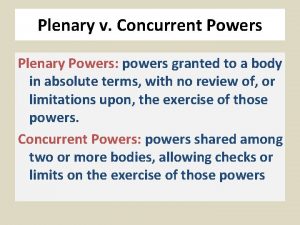THEORY OF SEPARATION OF POWERS MEANING OF SEPARATION







- Slides: 7

THEORY OF SEPARATION OF POWERS

MEANING OF SEPARATION OF POWER It means that the powers of the government are not concentrated into one organ of the government otherwise there will be no freedom. Each organ should neither interfere with the other nor influence the other.

ORIGIN OF THE CONCEPT OF SEPARATION OF POWERS The term has been forwarded by Montesquieu. Prior to him even though many scholars have given the indication on separation of powers. First, Aristotle described the three organs of the government but he did not explain there mutual relations in detail.

Montesquieu gave theory in his book “Spirit of Laws”. According to him, “When the legislative, executive or judicial powers are combined in the same person or same monarch than there can be no liberty, as the monarch or the senate will make tyrannical laws and implement them in the tyrannical manner. ”

CRITICISM OF THEORY OF SEPARATION OF POWERS: 1. 2. 3. 4. 5. Absolute Separation of Powers The theory is not practicable hence even in USA it has been modified by a system of checks and balances The basis of the theory is confusing The Organs of the government are mutually dependent

6. All the organs of the government do not co-ordinate 7. The theory will lead to inefficiency in the government 8. The authoritarian objection 9. Individual liberty is possible even without te separation of powers

CONCLUSION Hence one can see that although there is separation of powers between the three organs of the government but they are not totally independent and still mutual dependency on each other prevails in all the forms of the government. This happen through the process of checks and balances.
